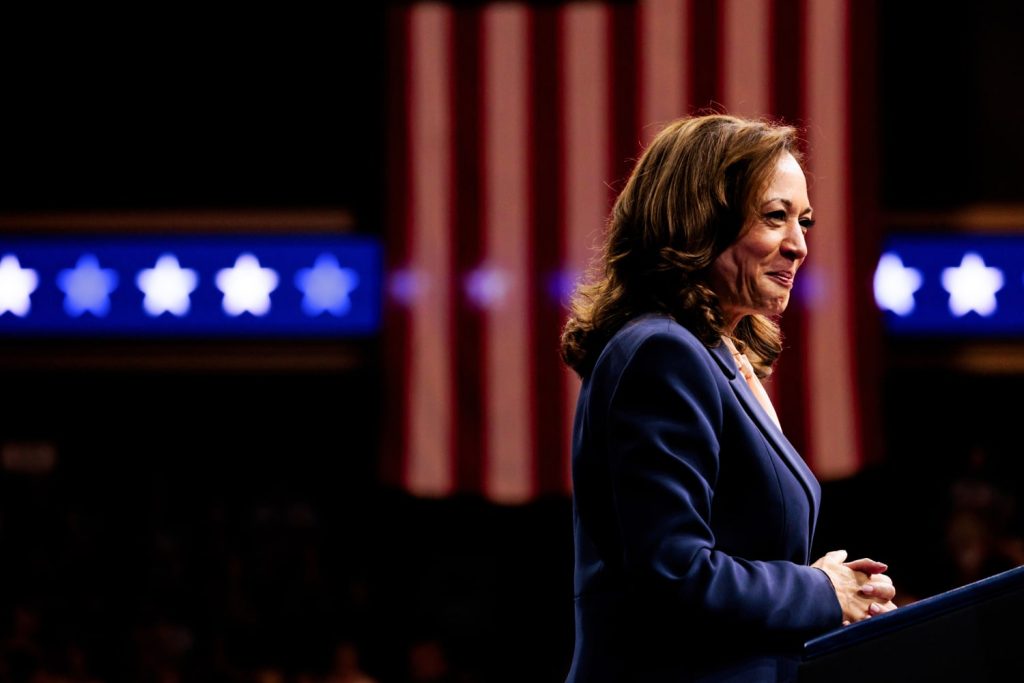President Harris May Face Senate GOP Obstacles for Supreme Court Appointments
3 min read
Kamala Harris at a campaign event in Philadelphia on Aug. 6.

Kamala Harris at a campaign event in Philadelphia on Aug. 6.
If Kamala Harris ascends to the presidency, she could have the opportunity to significantly reshape the Supreme Court through one or more nominations. However, her ability to do so might be hindered if Republicans regain control of the Senate after the upcoming elections.
In such a scenario, Harris would rely on the next Republican Senate leader to schedule votes on her nominees, a process that appears fraught with uncertainty. In recent interviews with CNN, leading candidates to succeed Senate Minority Leader Mitch McConnell were noncommittal about advancing any Supreme Court nominees from a President Harris.
“It depends,” said Texas Senator John Cornyn when asked if a Harris nominee would receive a vote in a Senate he might lead. “They would have to go through the committee process, and it would depend on who the president nominates.” He further expressed that he would not schedule a vote for what he termed a “wild-eyed radical nominee,” implying skepticism about any potential picks Harris might put forward.
Senate GOP Whip John Thune from South Dakota echoed Cornyn’s sentiments. “We’ll cross that bridge when we come to it,” he remarked regarding the confirmation of a Harris nominee, emphasizing that the decision would hinge on the identity of the nominee. “That’s the advantage of having a Republican Senate,” he added.
These comments reflect a growing trend in which Supreme Court confirmations have become deeply partisan, contrasting sharply with earlier times when presidents routinely secured confirmations from opposing party-controlled Senates. The decline in bipartisanship can be traced back to pivotal moments like McConnell’s 2016 decision to keep Justice Antonin Scalia’s seat vacant for over a year, effectively blocking then-President Barack Obama from filling it.
The leadership of the GOP will be determined during the lame-duck session of Congress following the November elections. Currently, only Cornyn and Thune, along with Florida Senator Rick Scott, are in the running to replace McConnell. All sitting GOP senators and incoming freshmen will cast votes, but the secret ballot nature of Senate votes makes it difficult to predict outcomes.
The GOP appears to have a favorable outlook for the upcoming elections, as they are well-positioned to gain control of the Senate. Democrats are tasked with defending seats in three red states, alongside seven additional competitive seats. In contrast, Democrats have only two potential pickup opportunities in Texas and Florida, which are seen as unlikely wins.
Should Harris win the presidency, she could find herself confronting a Republican-controlled Senate that may obstruct her legislative agenda and demand concessions. If Donald Trump returns to the presidency, he might face similar challenges, given that both Cornyn and Thune have indicated they would not abolish the Senate filibuster. This means advancing most legislation would still require a 60-vote threshold, necessitating some Democratic support.
When asked how he would approach a Harris administration, Cornyn quipped, “We would be the loyal opposition.” This remark underscores the growing sentiment among Republican senators that their role would be to resist and challenge a Democratic president’s initiatives.
The partisan landscape in Washington has shifted dramatically in recent years, and the prospect of contentious Supreme Court nominations under a President Harris looms large. The Republican Party’s reluctance to consider any nominee from a Democratic president raises questions about the future of judicial appointments, which have historically played a pivotal role in shaping American law and society.
As the Senate races unfold and the November elections draw near, the dynamics of power could dictate not only the direction of the Supreme Court but also the broader legislative landscape. The ongoing partisan strife highlights the fragility of cooperation in a system that once prided itself on its checks and balances, further complicating the already contentious process of judicial confirmations.
In summary, if Harris becomes president, her ambitions for the Supreme Court may face significant roadblocks, and the future of her administration’s legislative efforts could hinge on a Senate poised to challenge her every move.